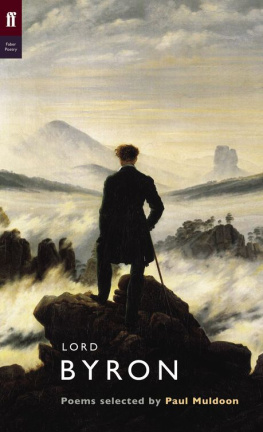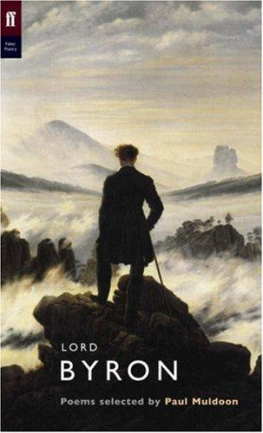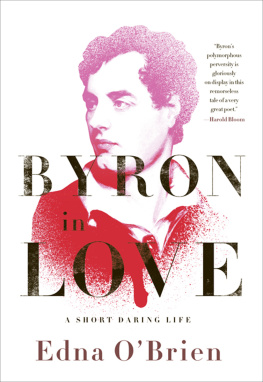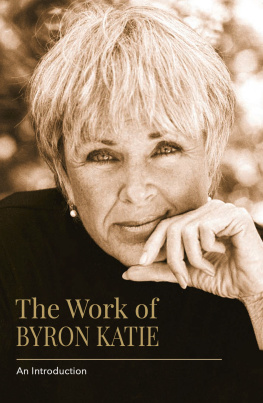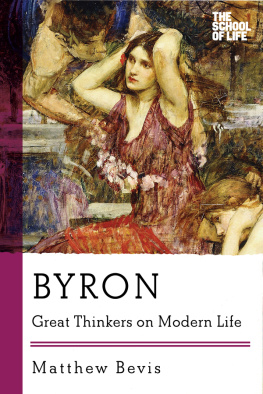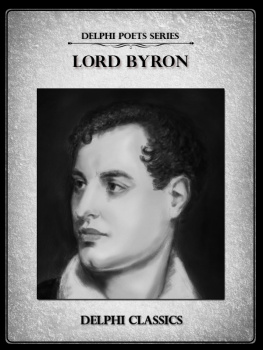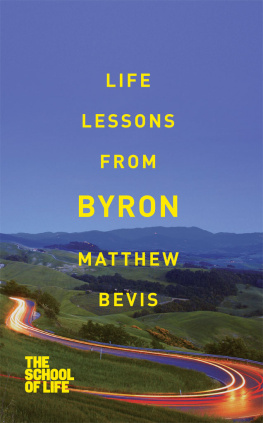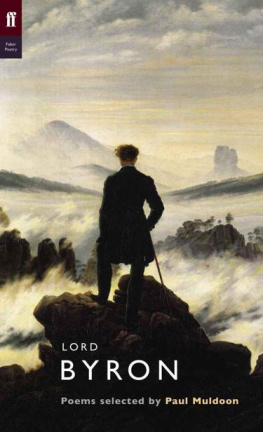I want to begin with a dictionary definition of the term
Byronic: adj. possessing the characteristics of Lord Byron, or of his poetry, over-strained in sentiment or passion, cynical and libertine. That the name of a poet who is now comparatively little-read should have entered the language on account of his life rather than his work is an irony that he himself would have savoured, however bitterly. Byron once wrote to his friend, the Irish melodist Tom Moore, who had recently been the subject of a biography: The biographer has made a botch of your life. If that damned fellow was to write
my life, I would certainly take his. As it turned out, Moore would himself write a
Lifeof Byron, and in a review of that book Macaulay would give a thumbnail sketch of the so-called Byronic hero, a man proud, moody, cynical, with defiance on his brow and misery in his heart, a scorner of his kind, implacable in revenge, yet capable of deep and strong affection.
It is the confusion in the popular imagination between the Byronic hero and Byron himself that has dogged generations of his readers. That confusion does not seem to be entirely unfounded when one considers the facts of his life. His great modern biographer, Leslie Marchand, begins: George Gordon, the sixth Lord Byron, was born with a lame right foot on January 22nd, 1788. This handicap, which modern surgery could almost certainly have minimized, may account for Byrons inclination to compensate with feats of physical stamina and derring-do, such as his famous swimming of the Hellespont. His mothers mood fluctuated from cosseting to contemptuous she once referred to him as a lame brat while his father, a dissolute Scots Peer, was uniformly dislikable; he finally ran out on the family when George was two years old. At the age of ten the boy succeeded to the title on the death of an uncle, and the new Lord Byron left London for the family seat at Newstead Abbey, near Nottingham.
In due course, Byron went to school at Harrow and then to the university of Cambridge, where he began to write the poems that were eventually published under the title Hours of Idleness (1807), a dismissive notice of which appeared in The EdinburghReview. This prompted Byrons first major work, English Bardsand Scotch Reviewers (1809), an exuberant, excoriating attack on the fashionable critics and poets of the day, including Wordsworth, Coleridge and, above all, Robert Southey, his favorite bte noire. The extracts Ive included here give some clue not only to Byrons enemies but also his heroes, preeminent among whom is Alexander Pope; already Byron had taken Popes couplet and made it his own, investing it with the languorous cutting edge that would typify his later long poems. In 1809 Byron also made his first trip to the Mediterranean and began Childe Harolds Pilgrimage, which was published in 1812 to great popular acclaim; as Byron put it, I awoke one morning and found myself famous. He was particularly flattered by his reception in the New World: These are the first tidings that ever sounded like Fame to my ears to be redde [sic] on the banks of the Ohio! Childe Harold was followed by a series of poems, The Giaour, The Bride of Abydos, The Corsair and Lara, that gratified the public demand for romantic adventure stories. Byrons own romantic adventures were also the subject of public scrutiny: there was the affair with a married woman, Lady Caroline Lamb, who characterized him as mad, bad and dangerous to know; there was the incestuous affair with his half-sister, Augusta Leigh; there was the short-lived marriage to Annabella Millbanke.
In the midst of rumour and speculation, Byron left England in 1816, never to return. On his last night in Dover, he visited the grave of the eighteenth-century satiric poet Charles Churchill, for whom he had some fellow feeling; like Churchill, Byron had been the flavour of the month, the comet of a season. For the next seven years, Byron lived mostly in Italy, where he gave himself over to sleep, eating and swilling, buttoning and unbuttoning and the writing of poems the further peregrinations of Childe Harold, The Prisoner of Chillon,Manfred, Mazeppa, and my own favourite, Beppo, which Ive included in its entirety. In Beppo (1818) we see Byron at his brilliant best witty, wise, at one moment stepping on the gas and cruising along the narrative equivalent of a six-lane highway, at the next content to pull over and make a leisurely digression down some back road or blind alley. I must myself digress to explain something of my thinking in making this present selection. If youre already familiar with Byrons work you will, I hope, understand my dilemma; stated bluntly, it is that while this volume is necessarily short, the best of Byrons poems are often very long.
I wanted to avoid as much as possible the chopping up of poems into kindling, but could not (as with Don Juan) manage it entirely. On the other hand, my choice of a complete, longer poem like Beppo over, say, TheSiege of Corinth may strike some readers as being merely whimsical. That, Im afraid, is a risk I have to take. Another longer piece I chose to reprint in full is The Vision of Judgement (1822), which was prompted by a poem of the same title by Southey, who had become Poet Laureate and exchanged his erstwhile radical republicanism for unabashed royalism. Here the slow burn of Byrons invective makes his occasional pieces on another political enemy, Robert Stewart, Viscount Castlereagh and second Marquis of Londonderry, look like damp squibs by comparison. For the ultimate fireworks display one turns, of course, to Don Juan, all five hundred seemingly effortless pages of it.
Byrons mature style is wonderfully discursive, ranging from Aristotle through hitting the sack to hitting the bottle of sack, while relishing the rhyme on Aristotle and bottle along the way; he reminds us again and again that poetry can be serious without being solemn, that it might even be fun. When the last two cantos of Don Juan were published, in March 1824, Byron was in Missolonghi, Greece, where he had gone to help in the Greek war of independence. On the ninth of April he caught a chill; ten days later he was dead. He had never cared to have his bones mingled with that motley throng in Poets Corner in any case, the Dean of Westminster refused to allow his burial there and he was laid to rest in his family vault at Hucknall Torckard, Nottinghamshire. In death as in life, Byron set the great example of poet as maverick, joining no club that would have him as a member, at odds with his publisher and public alike They hate me, and I detest them, I mean your present public, but they shall not interrupt the march of my mind, nor prevent me from telling the tyrants who are attempting to trample upon all thought that their thrones will yet be rocked to their foundation at odds, finally, with himself; as recently as 1938 his tomb was opened for examination and, in the words of one eyewitness, his right foot had been cut off and lay at the bottom of the coffin. PAUL MULDOON
LORD BYRON
Still must I hear? shall hoarse F ITZGERALD BAWL His creaking couplets in a tavern hall, And I not sing, lest, haply, Scotch Reviews Should dub me scribbler, and denounce my Muse? Prepare for rhyme Ill publish, right or wrong: Fools are my theme, let Satire be my song.
When Vice triumphant holds her sovreign sway, Obeyd by all, who nought beside obey; When Folly, frequent harbinger of crime, Bedecks her cap with bells of every Clime, When Knaves and Fools combined oer all prevail, And weigh their Justice in a Golden Scale, Een then the boldest start from public sneers, Afraid of Shame, unknown to other fears, More darkly sin, by Satire kept in awe, And shrink from Ridicule, though not from Law. Such is the force of Wit! but not belong To me the arrows of satiric song; The royal vices of our age demand A keener weapon, and a mightier hand. Still there are follies, een for me to chase, And yield at least amusement in the race: Laugh when I laugh, I seek no other fame, The cry is up, and scribblers are my game: Speed Pegasus! ye strains of great and small, Ode! Epic! Elegy! have at you all! I, too, can scrawl, and once upon a time I poured along the town a flood of rhyme, A school-boy freak, unworthy praise or blame; I printed older children do the same. Tis pleasant, sure, to see ones name in print; A Books a Book, altho theres nothing int. Not that a Titles sounding charm can save Or scrawl or scribbler from an equal grave: This L AMB must own, since his Patrician name Failed to preserve the spurious Farce from shame. No matter, G EORGE continues still to write, Tho now the name is veiled from public sight.

